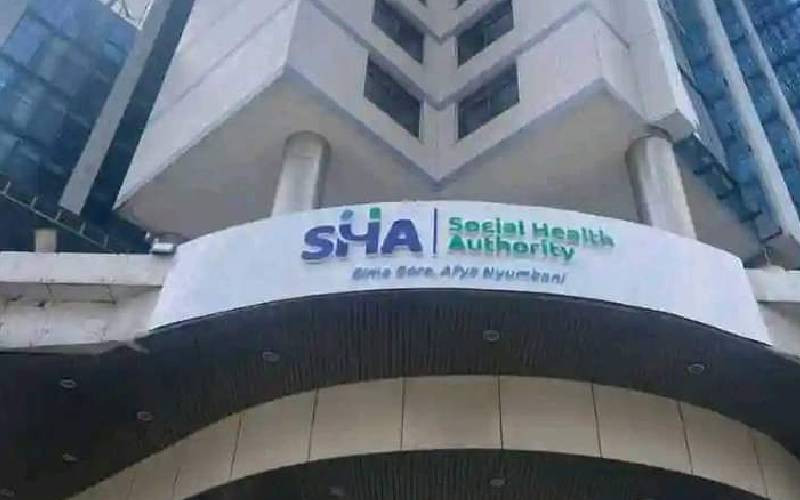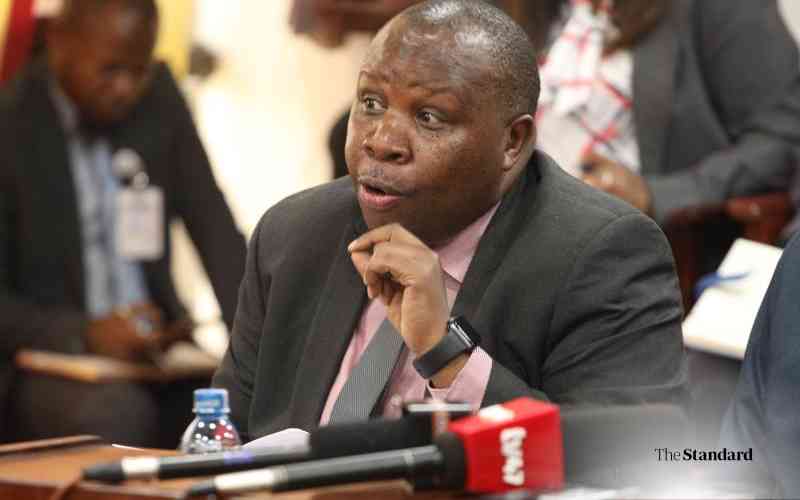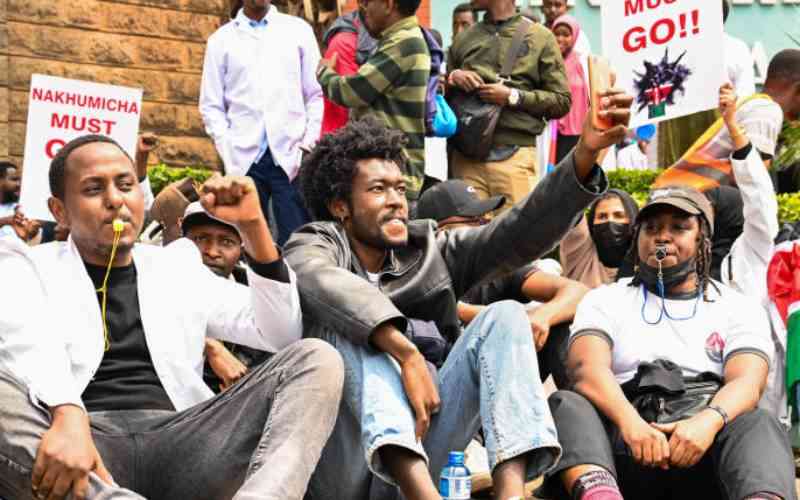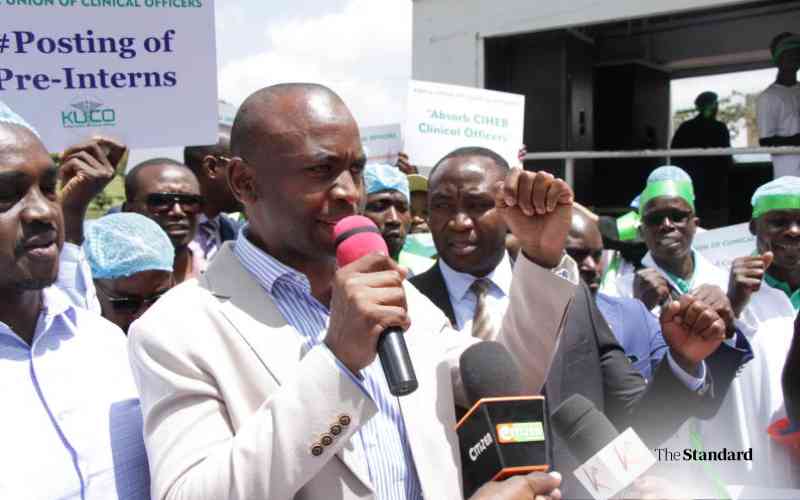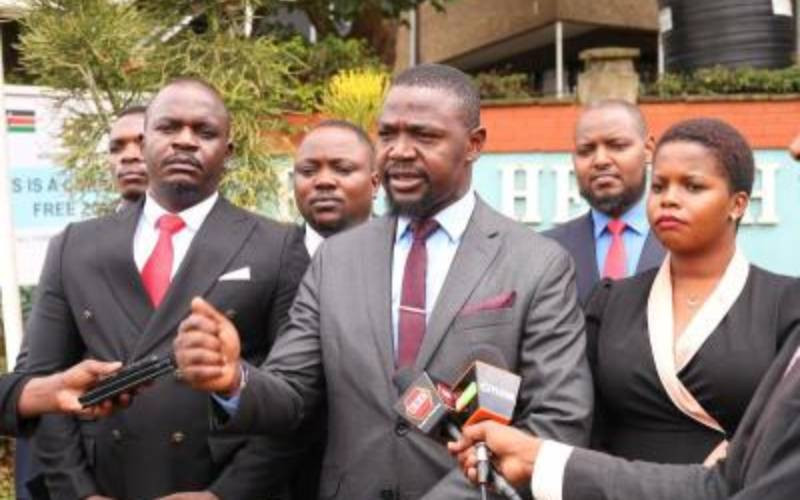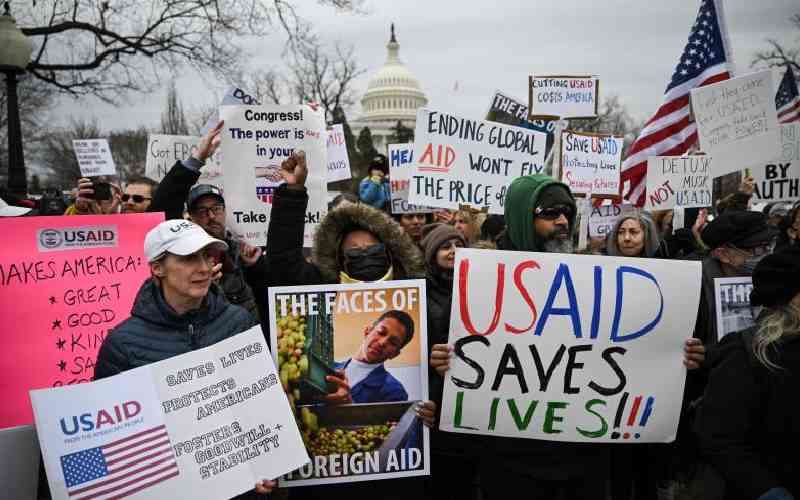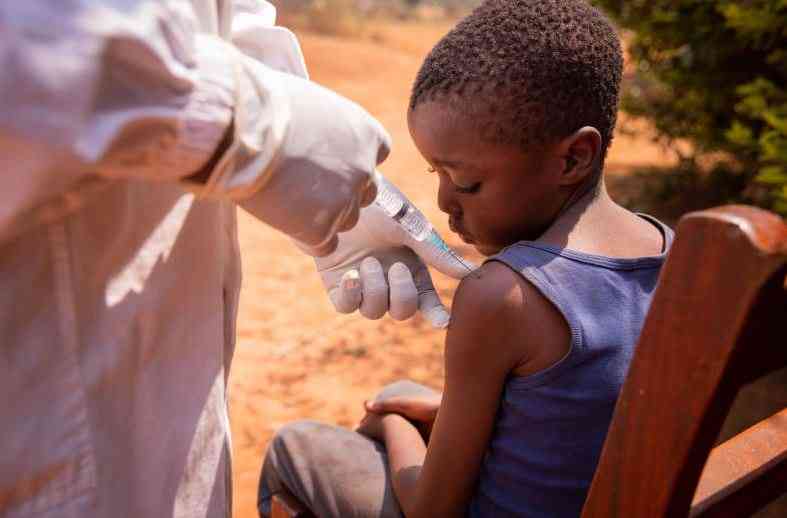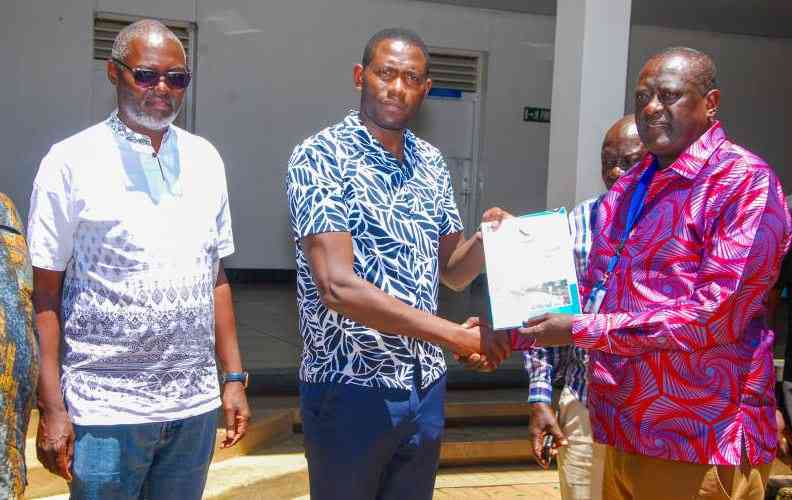
Despite the Ministry of Health claim of registering 50,000 Kenyans daily to Social Health Authority (SHA), actual remittance of deductions remains low among those in informal sector.
Caped at 2.75 per cent, it emerged that only 437,000 households in the informal sector are up-to-date, in remittance of their monthly contributions as provided for in the laws.
This is a significant drop from the 700,000 who were contributing under the defunct National Health Insurance Fund (NHIF).
Overall, at least 22.7 million people have enrolled in the SHA scheme, among them 13.6 million in formal sector, 3.4 million in informal sector and 5.7 million dependents covered under both categories.
But of all those registered, only 3.8 million are actively making their contributions, among them 3.4 million in formal sector and 0.4 million in informal sector.
“Before transition issues, NHIF had 4.7 million for formal and 700,000 for informal up to date,” a senior SHA employee who transitioned from NHIF told The Standard.
The low remittance to the new scheme projected to actualise Universal Health Coverage (UHC) is reported even as the Health Cabinet Secretary (CS) Adan Duale celebrates the rapid registration milestones.
- No new mpox cases confirmed since July 22, Health ministry says
- Kenya confirms one Mpox case, steps up surveillance at border
- Court extends stay on health laws as ministry appeals ruling
- Second case of Mpox reported in Kenya
Keep Reading
Appearing before the National Assembly recently, Duale said in six months since SHA started, there are 21.6 million Kenyans who have registered with SHA, an average number of 50,000 Kenyans register daily.
“Every day including today, between 40,000 to 50,000 banyans register for SHA,” Duale said.
“As I was waiting for my colleague to finish, 38,000 have registered, 18,000 have gone through means testing,” said the CS, while appearing at the assembly on April 16, 2025.
Further, the CS said members of SHA are able to access Sh28,000 allocated for Intensive Care Unit (ICU), services he said were not under NHIF.
“Today all surgeries are partly paid by SHA, maternity is paid by SHA at a very good figure at charges of Sh30,000. We shall keep improving the benefit package until we weed out all medical harambee WhatsApp group,” Duale ere-affirmed.
But amid big talks, the source at the authority who requested anonymity attributed low contribution to communication hitch and politicisation of the process has lowered trust with the scheme.
As per the Kenya Kwanza health manifesto, President William Ruto promised to lower contributions for those in informal sector, from Sh500 under NHIF, to Sh300.
“The campaign promise of reducing premiums to Sh300 and male it a walk in walk our, yet we all know it is not possible. It makes it worse,” added the source.
Experts attribute the low payment rates among informal sector to the country’s harsh economic condition.
They urge the government, Ministry of Health, and SHA to either lower the premium rates or work to improve the broader economic environment to enable more Kenyans to afford the contributions.
Prof XN Iraki, an economist at the University of Nairobi, said it is unfortunate that most people he observed only pay when sick then stop after getting well.
“Hard economic times are the problem. Most people would prefer to, but essentials like food make them not pay for insurance,” Prof Iraki told The Standard in an interview. I have said repeatedly, ordinary Kenyans have no money to pay premiums. The state of the economy is the problem”.
“Many people work informally, and have no regular income to pay for Social Health Insurance Fund (SHIF),” he added
According to the economic expert, the government should reduce the premium payment or better improve the state of the economy so that we can make enough money to pay the premiums.
“Most people even in the informal sector would love to pay premiums if only they had enough money. The problem is that we have no money to pay the premiums. It is not about registration,” added Iraki.
Further, he said there is need to best way to boost enrolment to the scheme by demonstrating the benefits in terms of service delivery.
Kenya Medical Practitioners Pharmacists and Dentists Union (KMPDU) deputy secretary Dennis Miskellah said, “SHA is about money, it is about contributions so no matter how many people are registering, if they are not paying”.
Miskellah observed that people in informal sector are registering to the scheme to guarantee them access to free care under primary healthcare fund in level 2,3 and 4 hospitals, and emergency, chronic and critical care.
“People are not contributing to SHIF, and even if they register and contribute, they only register when sick, and contribute during moments that they are sick-bill is paid for them, and they go away,” regretted Miskellah.
Paying when sick, he said is like owning a car, and only getting insurance after an accident.
“We need to work and ensure those who are registering are also paying,” said Dr Miskellah.
According to the doctors representative, remittance of 2.75 percent by individuals in informal sector can only address if challenges witnessed in access to acre are solved.
“People do not see the need of paying then they go to these level 2,3 and 4 and they found no drugs. People see no need for paying when outpatient services, they have to pay from the pockets. They do not see the need of paying because they have to co-pay for some of the procedures.
Let us be more responsive, let's not dismiss the fears or issues Kenyans are raising. At times people can complain about something, and if you don't fix but just dismiss them, then they sit back in a wait and see mode,” he said.
Failure to have Kenyans remit to the new scheme according to the union representative will not realise actualisation of UHC.
“Let Kenyans know that there is nothing like free healthcare. If they want UHC, or Taifa Care, then they must pay for it through their contributions. We have to understand how insurance works-that today I contribute to help somebody so that tomorrow when I need it, somebody else shall also contribute for me. The pooling of resources for the overall good is what entails an insurance scheme,” he explained.
But he at the same time critiqued leadership of failing to listen to concerns of Kenyans.
In the past, Kenyans have raised an issue with delayed approval of services and limited benefits despite high deductions as compared to NHIF.
Lack of clarity on Proxy means testing- mathematics model that is used to estimate the household income, and calculate 2.75 per cent of that to give insurance premium.
Proxy means testing has been reported to give false results, with some Kenyans cheating the system.
“We have to ensure we are listening and taking feedback seriously. Kenyans do not trust politicians, they trust healthcare workers, and the government must find a way of onboarding healthcare workers in pushing for SHA registration,” said the KMPDU official.
Former Medical Services Principal Secretary Harry Kimtai attributed low contributions from the informal sector to irregular income, limited financial literacy, and difficulty accessing formal financial systems.
Kimtai told National Assembly Health Committee, chaired by Endebes MP Robert Pukose that SHA has adopted a multipronged approach to onboard individuals in informal sector.
This includes enhanced engagement through sensitization campaigns, partnerships with county governments, collaboration with informal sector groups, and integration with existing structures such as Saccos and chamas, in addition of educating public on importance of payment.
 The Standard Group Plc is a multi-media organization with investments in media platforms spanning newspaper print
operations, television, radio broadcasting, digital and online services. The Standard Group is recognized as a
leading multi-media house in Kenya with a key influence in matters of national and international interest.
The Standard Group Plc is a multi-media organization with investments in media platforms spanning newspaper print
operations, television, radio broadcasting, digital and online services. The Standard Group is recognized as a
leading multi-media house in Kenya with a key influence in matters of national and international interest.

